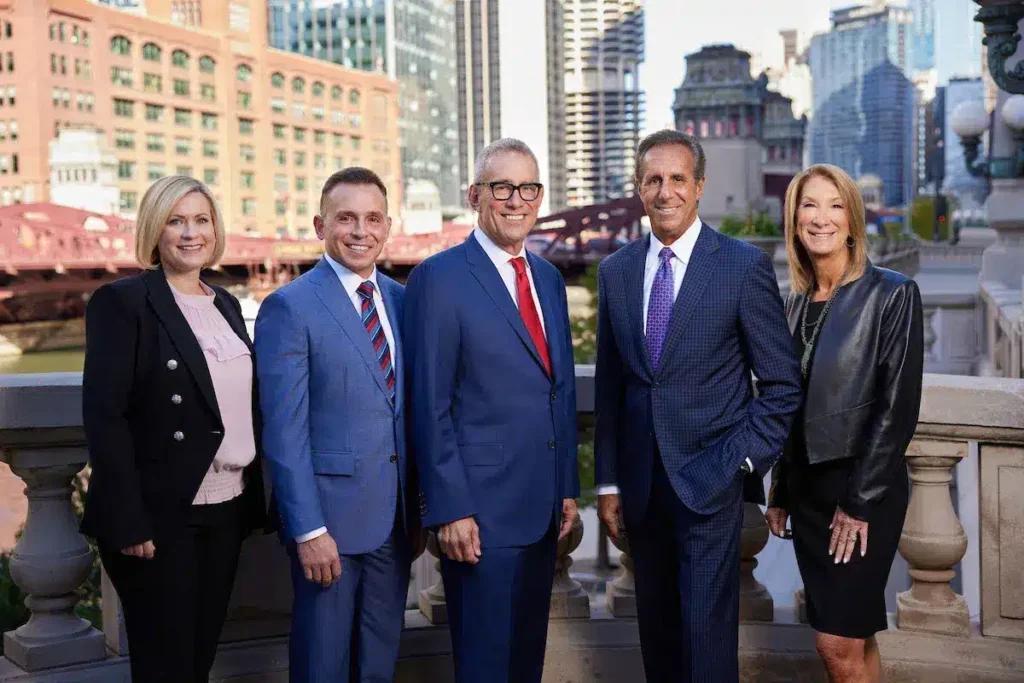Attorney for Neglect & Abuse Cases at The Grove of Elmhurst

Like all forms of abuse, nursing home abuse is never the victim’s fault. No one ever deserves to be harmed, especially vulnerable people who rely on and trust their caregivers. It is a serious breach of that trust when a caregiver, especially a professionally trained and paid one, takes advantage of someone they are responsible for and instead hurts them. It goes entirely against their purpose. Unfortunately, too many caregivers forget themselves and become abusers.
Home | The Grove Nursing Homes Neglect Attorneys | Attorney for Neglect & Abuse Cases at The Grove of Elmhurst
There are a number of risk factors that make a nursing home resident more likely to be abused. It is not their fault, but studies have shown that these factors either make certain nursing home residents easier targets for abuse or bring out the worst behavior in their caregivers. If a loved one in assisted living has any of these factors, you should be especially observant for signs of abuse.
Poor cognitive function
Many nursing home residents require professional care because of cognitive decline. Conditions like dementia and Alzheimer’s affect an individual’s memory, comprehension, attention, engagement, and communication.
The problems this causes are twofold: caregivers may grow frustrated with them and respond to them in an abusive manner or they may target them for abuse because they feel they can get away with it. Someone with a mental disability may not recognize that they are being abused, remember the incident, or be taken seriously if they do report it. This makes it easy for an abuser to continue their hurtful behavior with no repercussions.
Aggressive tendencies
As an aging person’s health and mental faculties decline, they may exhibit problematic and uncharacteristic behaviors such as aggression and violence. They cannot be blamed for this as they are no longer in control of themselves.
Unfortunately, ill-prepared staff can easily forget that they are working with someone who is not in their right mind and may retaliate with similarly aggressive behavior. Whether out of fear or anger, this is inexcusable in professional caregivers who should know better and have training or access to someone with the training necessary to safely interact with a belligerent resident.
Isolation
It is well-documented that nursing home residents who do not receive visits or have frequent contact with relatives and friends are more likely to be victimized. Predatory staff know which residents are being checked on and have support from outsiders. Therefore, they will often target residents who do not have someone to “tell on them” to or to notice that something isn’t quite right. Frail residents especially need outside support to help them recognize and report abuse as they may not be able to do so themselves.
No victim should ever feel guilty or ashamed for being victimized. No one asks or deserves to be abused. But it is important for new nursing home residents and their families to be aware of any factors that could make abuse more likely so they can take measures to prevent or watch for it.
Preventing Nursing Home Abuse
No one can stop the mental and physical decline experienced in old age that often contributes to an individual’s risk for elder abuse. However, some environmental risks can be addressed to help the issue. You already learned that isolated nursing home residents are more likely to suffer abuse.
As the family of a resident, make a conscious effort to visit or invite other friends and family to visit and check on your loved one. Social activity can actually slow dangerous cognitive decline, and regular visits communicate to predatory staff that you are monitoring how your relative is treated.
Depending on your family member’s state of mind, you can discuss safe practices with them to help them understand how to protect themselves in assisted living. For instance, you can talk about keeping valuables safe from thieves and to never give nursing home staff financial information. You can review the facility’s grievance procedure with them so they understand they have the right to submit complaints. You can discuss what degree of privacy and dignity they should expect so they can question disrespectful behavior.
It may seem silly talking about safety practices with a grown adult, but seniors get confused easily and a nursing home may be a very new and different environment for them. This also lets them know you care and are on their side should something go wrong.
Finally, preventing nursing home abuse has much to do with the nursing home itself. A lot of elder abuse stems from frustrated caregivers. Nursing home staff often get to that level of frustration when they are overworked, underpaid, poorly trained, and unsupported by their employer. Therefore, abuse is more rampant in underperforming nursing homes, and it is these facilities you should avoid.
But how can you know which facilities are bad and which are the good ones? They all look pretty much the same at first glance.
After decades of fighting for the rights of nursing home abuse victims, Levin & Perconti has come to trust Medicare for accurate assessments of nursing home performance. Each year, Medicare inspects and rates US nursing homes based on categories like health inspections, staffing, and quality measures. Then they publish those ratings on their website so families like yours can compare nursing homes in their area and see which ones are reputable and which ones are questionable.
Medicare also publishes its health inspection reports on medicare.org for your information. You can read these reports and compare the number and severity of health citations at the nursing homes you’re considering before choosing one. While nearly all nursing home facilities will have some citations, some are relatively minor while others are huge red flags. Between these reports and the Medicare rating system, you should be able to filter out the struggling nursing homes and pick a high quality one.
To make this process even easier, Levin & Perconti also shares the information found on medicare.org for Illinois nursing homes on our own site for you. Whether fighting for nursing home victims’ rights in a courtroom or helping you prevent abuse by picking a safe facility, Levin & Perconti is dedicated to ending the scourge of nursing home abuse.
About The Grove of Elmhurst
127 W Diversey Ave.
Elmhurst, IL 60126
The Grove of Elmhurst provides post-hospital rehabilitation care. The facility boasts180 Medicare-certified beds and an extensive menu of medical services including cardiac care, oncology care, orthopedic care, pulmonary care, post-surgical rehabilitation of all kinds, and hospice care.
Medicare gives The Grove of Elmhurst a mere Average overall rating thanks to its Average health inspection and quality measures ratings and Below Average staffing rating. You should also consider the health citations the facility received in the past year. The full report can be found on medicare.org, but a sample is also below.
- 3/14/2019 Failure to provide care and assistance to perform activities of daily living for any resident who is unable. The facility failed to ensure that five residents received routine oral and hair care. One resident was observed with dry crust on his mouth and oily hair, which was not addressed during morning care that day. Two other residents did not receive oral care as part of the morning care routine. A fourth resident was observed with greasy hair, cracked lips, and overgrown nails. A fifth resident did not receive hair or oral care during morning care.
- 5/25/2018 Failure to ensure that a nursing home area is free from accident hazards and provides adequate supervision to prevent accidents. Staff failed to properly place a mechanical lift sling during a sit to stand transfer of a resident. Staff were observed transferring a resident from her wheelchair to her bed with a sit to stand type lift. The sling belt was placed wrong, protective padding was out of place, and the sling was not secure. This caused the sling to pull the resident up and completely suspend her during transfer. The CNAs did not know what the protective padding was for and only realized after that the sling was placed backwards.
- 5/25/3018 Failure to provide appropriate pressure ulcer care and prevent new ulcers from developing. The facility failed to ensure dressings for wounds were clean for one resident. The resident was observed with a soiled dressing one pressure ulcer and no dressings on other wounds. A second resident was observed in bed with legs contracted at the knees with no pillow between them to relieve pressure points. He was observed being repositioned twice with no pillow offered.
Levin & Perconti, Your Nursing Home Abuse Law Experts
If you or a family member have suffered abuse at The Grove of Elmhurst or another Illinois nursing home, it isn’t your fault and you may be entitled to some compensation. Let the expert nursing home abuse attorneys at Levin & Perconti handle your case. We’ve prosecuted hundreds of nursing home abuse cases in Illinois, some involving:
- Unauthorized Physical and/or Chemical Restraint Use
- Physical Abuse
- Alzheimer’s and Dementia Patients
- Falls, Improper Transfers, Drops by Staff
- Medication Errors
- Wandering and Elopement from facilities
- Pressure Sores
- Clogged Breathing Tubes
- Sepsis and Other Infections
- Burns
- Malnutrition and/or Dehydration
- Physical or Sexual Assault or Abuse
If you’re ready to get what you deserve and win against an abusive nursing home, contact us online or call Levin & Perconti at (877) 374-1417 today to get started with a free consultation.
Disclaimer: The above health inspection findings are taken from public records kept and published by Medicare and the state of Illinois and are not complete. Levin & Perconti cannot confirm that this page’s content includes the latest information available. Any corrections or additions made to these public records after publication of this page will not be found here. For the most up-to-date information, visit www.il.gov or medicare.gov. This page is a legal advertisement and informational resource for visitors and is not endorsed by the named facility or any government agency. Levin & Perconti does not have any affiliation with the named facility.
Legally Reviewed by

Bonamarte, IV
Read Bio
Since 2005, Michael Bonamarte IV has been a passionate advocate for victims of negligent conduct, corporate malfeasance, and medical malpractice. He has won numerous awards and recognitions, including Best Lawyers in America and Super Lawyers’ Rising Star. He has presented for the American Association for Justice, the AAJ Nursing Home Litigation Group, the John Marshall Law School, and numerous other legal associations. He regularly lectures at Chicago-area aging organizations about nursing home abuse. His writings have been published by the American Bar Association, the Chicago Daily Bulletin, and numerous other prestigious publications.
Notable Results
for failure to properly read pap smears, resulting in the misdiagnosis of cervical cancer and eventual death of a 35-year-old mother of three children.
for failing to biopsy a known breast tumor, resulting in the delay of diagnosis of breast cancer, causing death.
for failing to perform an annual pelvic exam, which resulted in the untimely diagnosis of ovarian cancer.